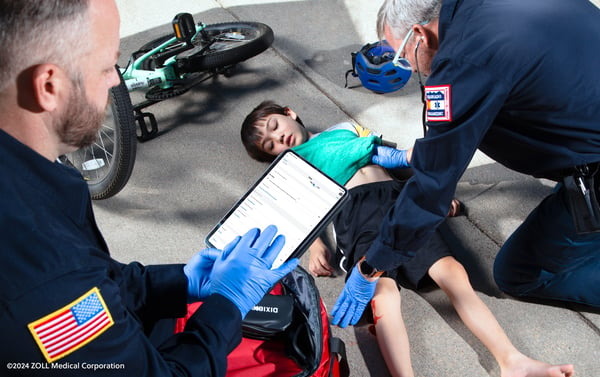Chart Smarter: Why One EMS Agency Ditched Paper for Mobile Tech
Being Paid vs. Being Paid Correctly: The Difference Can Be Costly
(4 min read) It’s no secret that being paid for the service you provide is the goal for most ambulance systems

(4 min read) It’s no secret that being paid for the service you provide is the goal for most ambulance systems. After all, reimbursement is what keeps the service in business, right? Unfortunately, when thinking about Revenue Cycle and getting paid for the service, we don’t always consider whether we are being paid by the correct payer. Revenue is more than a function of being paid and simply counting the dollars and cents. Being paid is only part of the equation. From a compliance perspective, being paid properly and by the right payer, for the right amount, with the ability to collect cost-sharing amounts or balance a bill (where permitted) is equally important, but often overlooked.

In the wake of the OIG Report, “Medicare Paid Twice for Ambulance Services Subject to Skilled Nursing Facility Consolidated Billing Requirements” (A-01-17-0056) there is heightened scrutiny by the government into Medicare payments to ambulance services. This government scrutiny should cause increased scrutiny by the entire ambulance industry – not just those services flagged in the OIG Report. The OIG Report evaluates (through data mining) whether ambulance transport of a Part A Skilled Nursing Facility (SNF) Inpatient was billable to Medicare Part B or the SNF. This is something we don’t always think about, and something that triggered millions of dollars of identified over-payments, because ambulance services improperly billed Medicare when an SNF was financially responsible for the ambulance transport.
When a claim gets paid by Medicare Part B, there is rarely any further discussion or analysis of whether it was billed and paid correctly. Instead, once the account is paid it gets closed, never to be thought about again. The logic goes like this: “since Medicare paid, the claim must have been billed and paid correctly” or “Medicare can determine the proper payer and make appropriate payment decisions.” Should that be the mentality? My answer is “of course not.”
Believe it or not, simply submitting a claim to Medicare seeking payment where Medicare is not the correct payer can constitute a false or fraudulent claim. Whether the claim is paid is not the deciding factor in assessing possible fraudulent activity. Like it or not, it is the ambulance service’s responsibility to make the proper billing decision. This means that the ambulance service needs to:
- Verify insurance (including Part A SNF status)
- Know the specific service the patient receives at the destination location
- Know the precise destination location (e.g., a physicians office located in a hospital is still a physician’s office, not coded as an “H.”)

Most Medicare Administrative Contractors (MAC) have improved the internal edits to prevent Medicare from paying if the patient is in a Part A SNF stay. These edits will trigger a denial, alerting the ambulance service to appeal or serve as a signal to bill the SNF. We suspect that many ambulance services have seen an increase in Medicare denials with a remark code indicating the patient was in a Part A SNF stay. These denials must not go ignored. They must be handled properly because it affects compliance and the Revenue Cycle. Simply billing the SNF is not always correct – the SNF might refuse to pay, and/or Medicare might be the proper payer. Just because Medicare denies a claim doesn’t mean the claim was denied correctly. That’s right, it works both ways: Medicare has been known to both pay and deny claims improperly. If the claim is improperly denied by Medicare, it is important to pursue an appeal. How do you know if the claim was improperly denied? That’s why you need to be aware of the patient’s SNF status, the service the patient receives, and the destination location.
The ultimate lesson here is to be proactive to make sure your billing and collection practices are compliant. Learning from our own mistakes is an age-old lesson. But perhaps Eleanor Roosevelt said it best: “Learn from the mistakes of others. You can’t live long enough to make them all yourself.”
Related Posts
The End of Delayed Documentation
4 Must-have Data Points for Dispatch-Billing Alignment and Maximum Reimbursement
ZOLL Pulse Blog
Subscribe to our blog and receive quality content that makes your job as an EMS & fire, hospital, or AR professional easier.
ZOLL Pulse Blog
Subscribe to our blog and receive quality content that makes your job as an EMS, fire, hospital, or AR professional easier.




